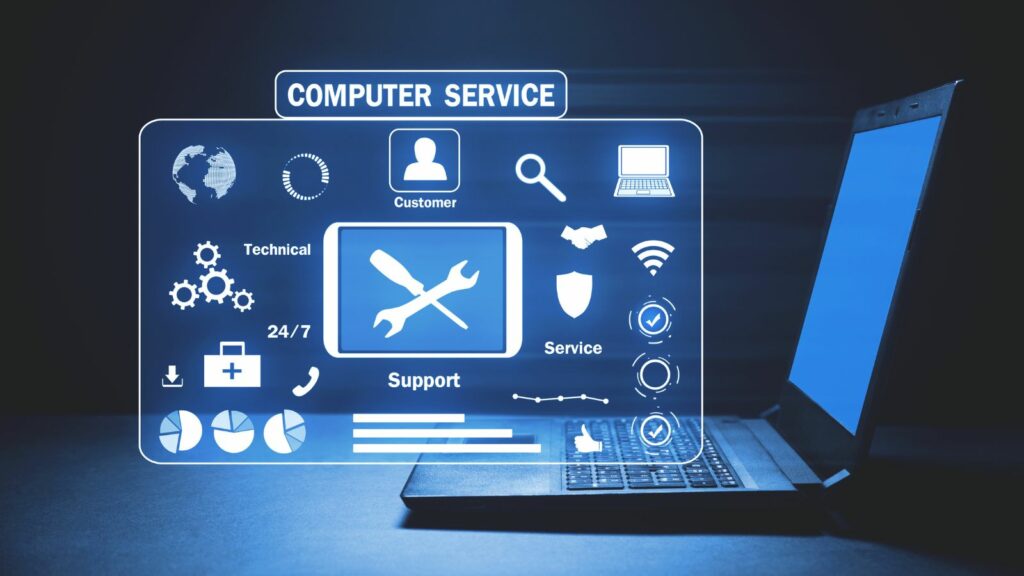In the fast-paced world of business, computing has become a critical cornerstone. It’s not just about crunching numbers anymore. From streamlining operations to enhancing customer experiences, business computing is transforming the way companies operate.
Whether you’re a seasoned entrepreneur or a budding startup, understanding the nuances of business computing can be a game-changer. It’s the secret sauce that can catapult your business to new heights. So, buckle up as we delve into the fascinating world of business computing, where technology meets commerce.
Business Computing
Business computing, in its simplest terms, refers to the application of computer technology, systems, and techniques in corporate environments to support and enhance business processes. It includes the management, communication, and interpretation of information to drive business decisions.

For instance, establishing a robust Enterprise Resource Planning (ERP) system allows businesses to improve coordination across departments. This setup enables teams—from human resources and inventory to sales and marketing—to work with the same database and make data-driven decisions.
The role of business computing in modern businesses cannot be overstated. It has transformed how businesses operate, communicate, and compete. Effective application of business computing leads to streamlined operations, improved customer experiences, and enhanced decision-making capabilities.
Let’s take eCommerce as an example. In such businesses, computing processes like data analysis and algorithm-driven recommendations provide insights into customer behavior, promoting personalized experiences that drive sales. On a larger scale, business computing can facilitate a company’s global expansion by providing a platform for real-time collaboration and communication across geographical boundaries.
Key Technologies in Business Computing
In the dynamic sphere of business computing, specific technologies stand at the forefront. These technologies not only underpin various operations but also drive enhanced results. Two pivotal areas which stand out in this regard are cloud solutions and data analytics used in conjunction with business intelligence.

Cloud solutions, a critical component of business computing, provide businesses with streamlined operations and significant cost reductions. They eliminate the need for on-site IT infrastructure, paving the way for remote access to business applications and data. For instance, cloud-based Customer Relationship Management (CRM) systems help sales teams manage customer information from any location, increasing flexibility and mobility.
Data is the lifeblood of modern businesses, making data analytics and business intelligence indispensable in today’s digital era. These tools convert raw data into meaningful information, driving strategic decision-making within a company. For example, predictive analytics, a subset of data analytics, assists in forecasting future business trends, giving companies a competitive edge. Simultaneously, business intelligence systems present this data in an easy-to-understand format—usually interactive dashboards—to aid executives and managers in making data-driven decisions.
Benefits of Business Computing for Operations
In a global marketplace, companies seek ways to improve efficiency and productivity. Business computing ascends as a game changer. It’s not only versatile and dynamic, but also enhances operational efficiency. Adopting business computing enables an organization to automate routine tasks, such as data management and procurement. The automation frees up resources for higher-level functions.

For instance, consider a situation where a mid-sized institution opts to implement business computing solutions. It introduces systems such as ERP, which help in coordinating various departments. The connectivity leads to a reduction in task redundancy. Consequently, job efficiency increases coupled with a rise in productivity. The change accredits the capabilities of computer technology in aiding corporate processes.
Another critical advantage of business computing resides in its capacity to streamline decision-making processes. In an era where companies base strategic decisions on data, enterprise computing provides the necessary framework. It allows for the collection, processing, and analysis of large volumes of data in real time.
To illustrate, imagine a retail company that wants to predict future sales trends. By employing business computing solutions, it’s able to collect customer data from different touchpoints. The data then undergoes thorough analysis leading to actionable insights. Armed with this information, the company can make informed decisions on upcoming sales strategies. Hence, systems like data analytics and cloud solutions play a significant role in the decision-making process.

